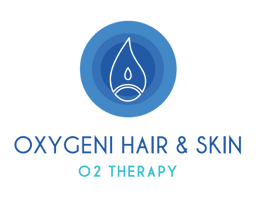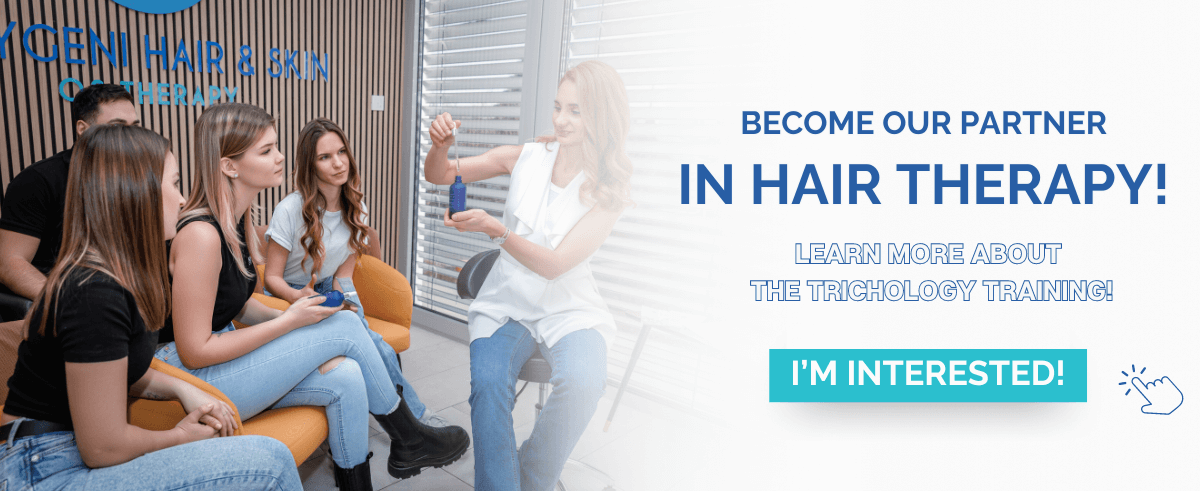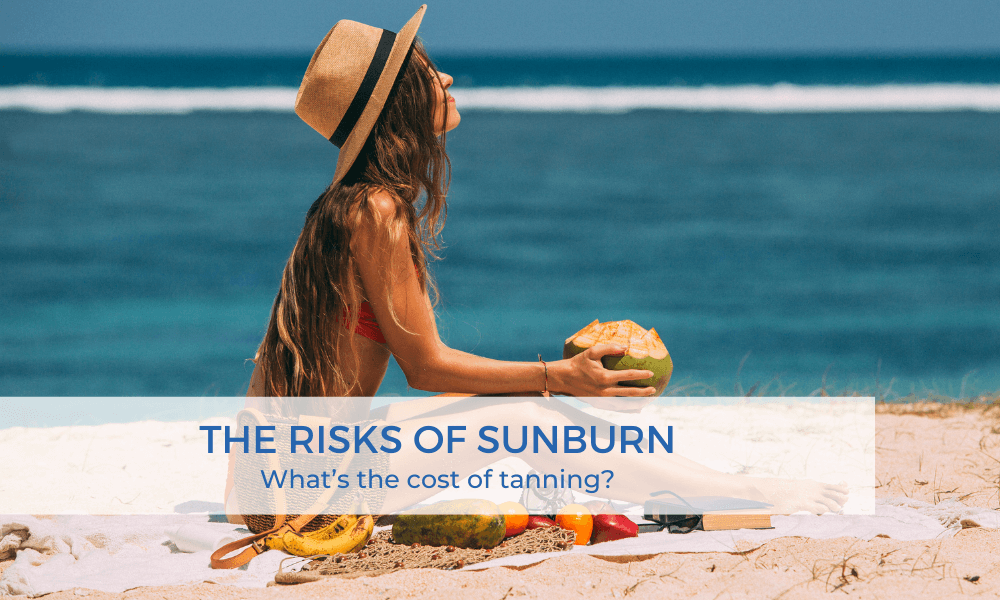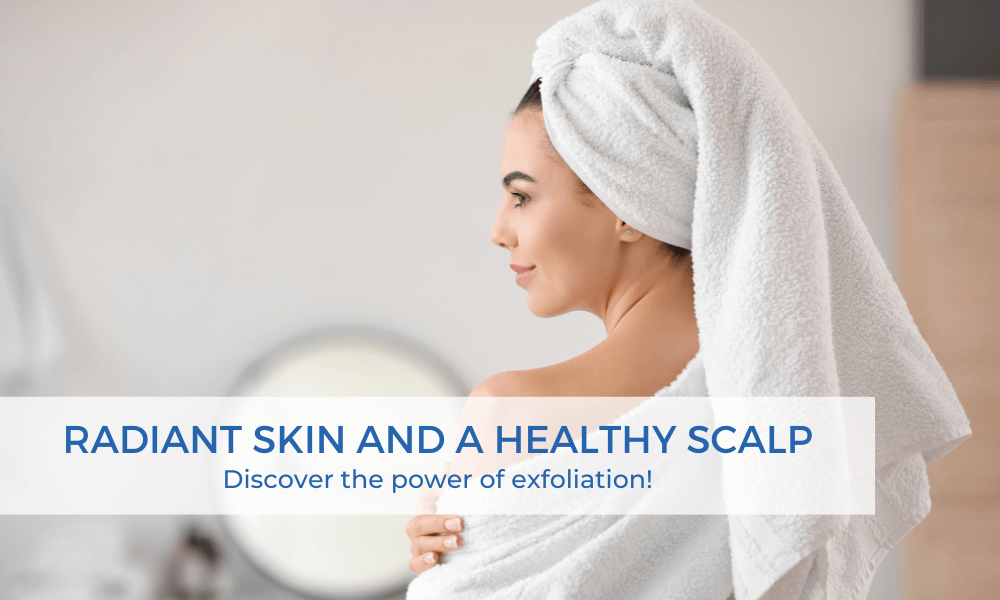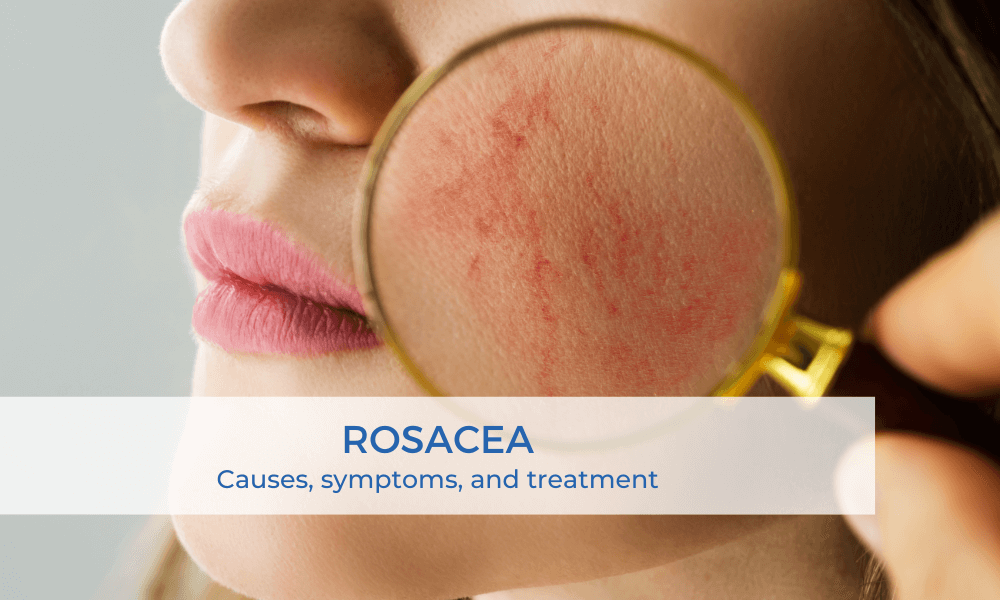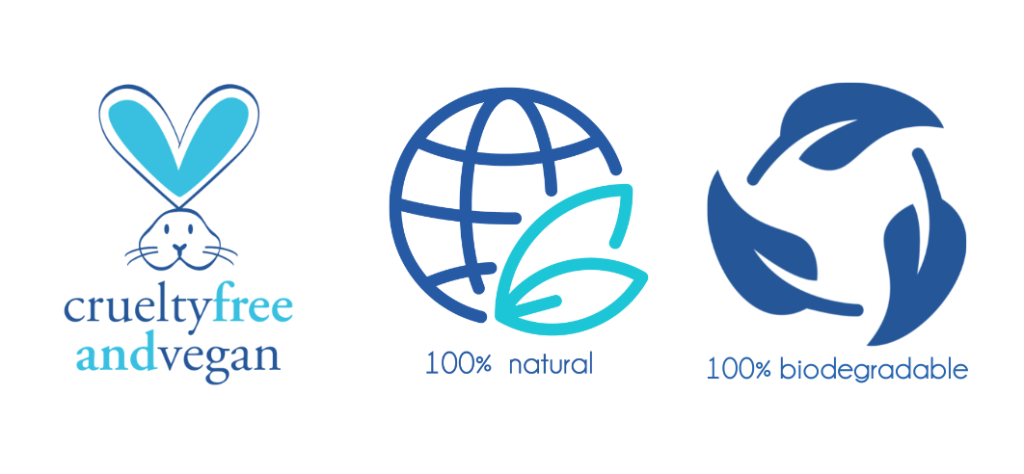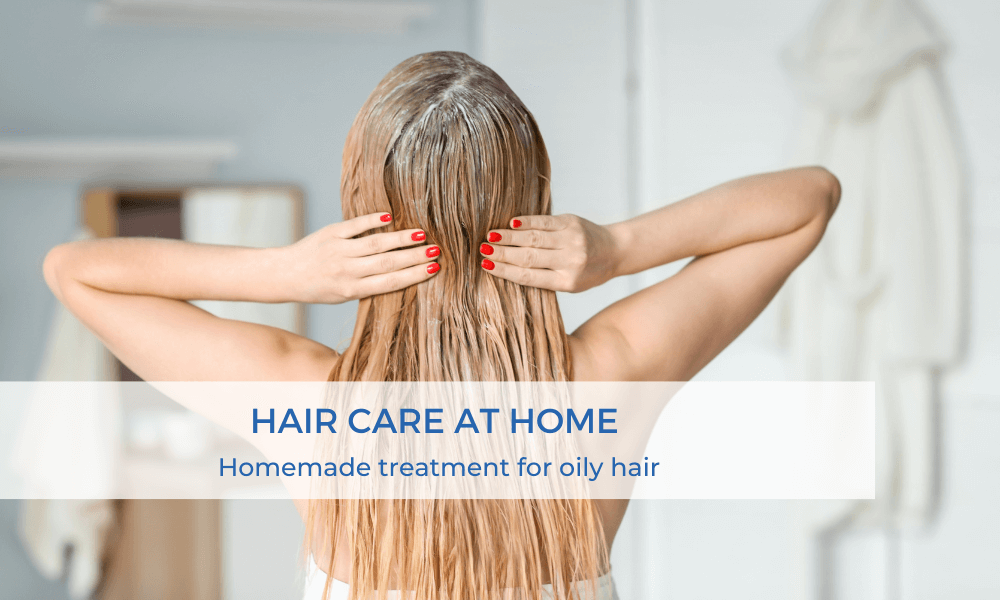
EVERYTHING YOU NEED TO KNOW ABOUT TREATING OILY HAIR AND SCALP
Oily hair and scalp rank among the most common hair problems, so it’s no wonder if you’ve been struggling with them for a long time. There could be various underlying causes that could make your hair look greasy in a short time, but fortunately, there are solutions. In our article, we’ve compiled everything you need to know about greasy hair and its treatment, so you can finally bid goodbye to this unpleasant problem!
WHAT CAUSES MY HAIR TO BECOME OILY?
Excessive oiliness of the hair is a consequence of increased sebum production and is perhaps the most common hair type. In this case, we can achieve results primarily by regulating sebum production. Excessive oiliness can also be accompanied by dandruff, which is a very unpleasant symptom. While intensive oiliness can be ‘masked’ with regular hair washing, dandruff is a more stubborn problem and is less concealable.
What exactly is dandruff?
Dandruff is the result of small pieces of dry skin flaking off from the scalp. These flakes adhere to the hair and scalp due to natural oils and airborne pollutants, forming a coating that can be difficult to remove.
HOW DOES THE SEBACEOUS GLAND WORK?
The product of the glands, sebum – a complex substance composed of various materials – reaches the skin surface along the hair follicle, where it forms the oily layer of our skin in a liquid state, playing a significant protective role. In the case of seborrhea, for example, sebum production increases due to certain reasons, making the hair and skin oily and shiny, accompanied by flaking dandruff on the scalp, and often with visible, red inflammation.
WHAT CAN CAUSE EXCESSIVE SEBUM PRODUCTION?
Balanced sebum secretion can be disrupted and prevented by certain hormonal changes, age, poor nutrition, and stress. The possible causes of oiliness can be metabolic breakdown, tense mental state, psychological and physical stress, but also can be due to chemical, mechanical, and environmental factors responsible for excessive sebum production. Excessive alcohol consumption, fatty, heavily spiced meals, and of course, improper hair care habits can also lead to excessive oiliness.
If you feel that your hair is becoming too oily, consult a hair specialist and seek help in accurately diagnosing your scalp condition so that you can treat your problem more effectively.
WHO IS MOST AT RISK OF SCALP OILINESS?
The trigger for oily hair and scalp can also be sought in our work environment or profession. Unfortunately, there are occupations and environmental factors that promote scalp oiliness. If you belong to the following categories, it’s essential to pay close attention to the condition of your scalp, as improper hair care can easily lead to more severe symptoms in these cases. Who are we talking about?
- swimmers, whose scalp is exposed to chlorinated water several times a week – chlorine dries out the scalp, leading to even greater sebum production
- cooks, kitchen workers who spend a lot of time in humid, smoky air and wear hats for extended periods
- outdoor workers, exposed to strong sunlight for long periods
- construction workers, working in dusty environments
- couriers, drivers, spending most of their time in polluted, dusty cities
- athletes, engaging in physically demanding activities that cause heavy sweating
However, changes in age and in the body can also lead to excessive scalp oiliness. Therefore, we often encounter heavily oily hair during puberty, but women who discontinue the use of contraceptives can also struggle with intense oiliness, often accompanied by severe hair loss.
OILY SCALP AND HAIR CAN ALSO LEAD TO HAIR LOSS
Another symptom of excessively oily hair is frequent and increased hair loss, as excess sebum can clog the hair follicles. Dust and dirt quickly adhere to the sebum layer, and bacteria proliferate more easily on it. The formed sebum layer can block the openings of the sebaceous glands, causing the hair follicles to become diseased prematurely, and with increased sebum secretion – as the hair follicles don’t receive enough oxygen and nutrients – the hair follicles begin to atrophy. Due to excessive oiliness, hair falls out prematurely while excessive sebum production greatly inhibits further hair growth.
OXYGEN THERAPY
The oxygen therapy developed by Oxygeni Hair and Skin helps ensure that cells and hair follicles receive adequate oxygen supply. The therapy is preceded by a micro-camera scalp examination, during which inflammations and scalp problems are easier to spot and analyze in depth.
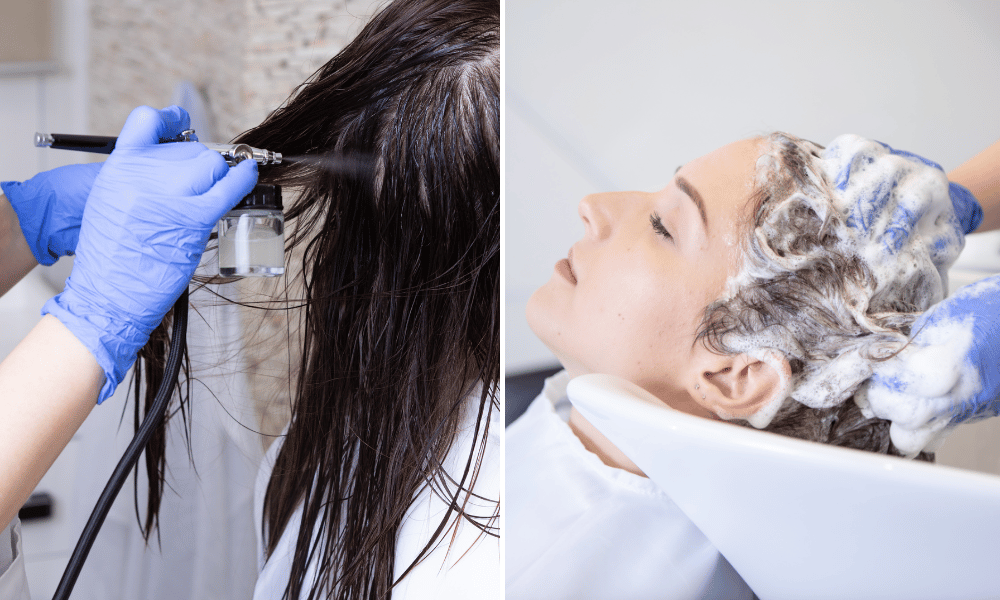
The treatment is 100% reliable and risk-free, and is based entirely on natural ingredients. Delivering proper oxygen, vitamin, and mineral supply to the hair follicles rejuvenates them, strengthens and thickens the hair strands, while the scalp is cleansed of impurities and regains its proper pH value.
Oxygen therapy is based on strengthening the immune system, making it applicable to any scalp and hair care problem, guaranteeing spectacular results.
OXYGEN THERAPY RESULTS
7 MYTHS ABOUT OILY HAIR AND ITS TREATMENT
- 1.) Hair dyeing is beneficial for oily hair and scalp.
False! It’s often said that hair dyeing disinfects and cleanses, but this is far from the truth! Chemical processes, including hair dyeing, seal the hair follicles with chemical substances and, in addition, dry them out, which triggers increased sebum production.
- 2.) Regular exfoliation helps!
Absolutely not! Just like with facial exfoliation, frequent scalp exfoliation can damage healthy skin due to the harsh abrasives. It’s true that they remove dead skin cells, but the problem often lies deeper than just the skin surface. So, frequent exfoliation doesn’t solve anything; it can only harm.
- 3.) Essential oils are a cure!
Essential oils are highly concentrated compounds, so they must be handled with extreme care, as they can easily cause irritation or allergic reactions. Even when mixed into shampoo or masks, the quantity must be carefully controlled to avoid adverse effects.
- 4.) Dehydration means dryness.
Not necessarily! In fact, in many cases, scalp oiliness develops due to dehydration. Since our scalp (and body) doesn’t receive enough fluids, sebum production increases to compensate for this deficiency. So, even if our scalp is dehydrated, it can still be oily!
- 5.) Herbal shampoos are the answer!
Herbs aren’t always harmless. In cases of sensitive or irritated scalp, it’s not advisable to use herbal shampoos or masks, as they can have aggressive effects and likely worsen the situation. Additionally, many herbal shampoos contain high percentages of alcohol-based tinctures, which further dry out the scalp. It’s essential to research the ingredients of the shampoo you plan to use!
- 6.) Sulfur shampoos!
Upon closer inspection, we’ll see that sulfur shampoos also contain chemicals (sulfates, silicones), but that’s not their biggest problem. They can cause the scalp to develop a dependency on medicated products. While we might observe improvement during use, if we attempt to switch products, the scalp’s oiliness worsens.
- 7.) What worked for them will work for me too.
There’s no two identical cases of scalp oiliness. Different underlying problems and types of oiliness require different, personalized treatments. Visiting a hair specialist and requesting an individual hair care plan is essential for treating excessively oily hair.
WHAT TO AVOID WHEN DEALING WITH OILY HAIR AND GREASY SCALP?
DAILY HAIR WASHING
If you wash your hair every day, it only makes it oilier, worsening the situation. Frequent cleansing leads to dryness, prompting even more sebum production on your scalp. Wash your hair only 2-3 times a week!
HOT AIR
Blow-drying with hot air not only damages the hair structure but also harms your scalp. High temperatures dry out and irritate the skin, leading to increased sebum production, resulting in oily hair and scalp.
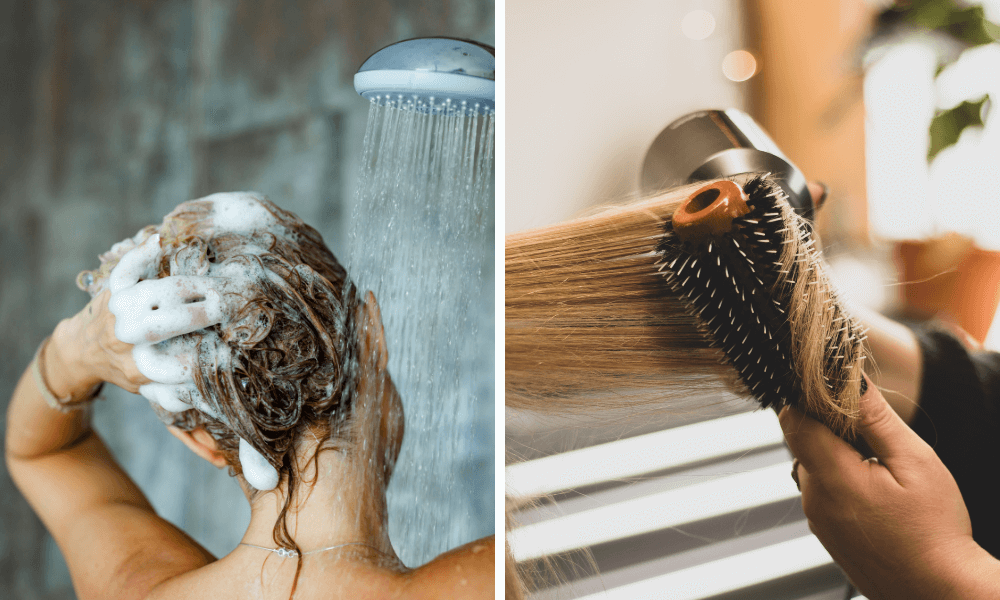
DRY AIR
We might not even notice how dry the air is around us, whether it’s at home, at work, or in the office. Just look at your plants, and you might see their browning leaves. The human body needs the right level of humidity, which can be quickly restored with a small cold humidifier. Very dry air can also harm the scalp, causing it to dry out, which can also lead to excessive sebum production.
STYLING PRODUCTS
Daily styling not only damages the hair but also irritates and dries out the scalp. Products like hairspray, mousse, volumizing powders, and dry shampoo lead to more intense sebum production. Wax or gel should also be avoided because they give the hair an oily appearance, and weigh down the hair strands, making it feel like the freshly washed hair has already become oily, leading to daily hair washing. It’s a vicious cycle!
CHEMICAL INTERVENTIONS
One can follow hairstyle trends, but it’s essential to bcautiousul. Perms, permanent hair straightening contains chemicals that can damage the scalp in the long run, disrupting its pH balance. Bleaching and hair dyeing also contribute to oiliness – but we’ll get back to this later. And when it comes to chemicals, you can start suspecting your shampoo and conditioner if you’re not using 100% natural products. Saturation with chemicals can also trigger excessive sebum production, leading to oily scalp and hair.
SUGAR
Hormonal balance is responsible for the body’s proper functioning, which excessive sugar consumption does not support at all. It can disrupt our hormonal balance. Moreover, excessive sugar intake promotes the development of inflammatory processes and raises blood sugar levels, which increases sebum production.
REFINED CARBOHYDRATES
There are healthy and explicitly harmful carbohydrates. Refined carbohydrates belong to the second category. Soft and spongy white bread is made from refined flour, which overloads our bodies, slows down, and complicates digestion. This process leads to overproduction of sebum by the sebaceous glands, resulting in more oily scalp, and consequently, oily hair.
FRIED FOODS
Fried foods saturate our bodies with fat and encourage sebaceous glands to produce excess oil. These oils and fats accumulate on the skin surface, including the face and scalp. After consuming a hamburger late at night, it will likely have an impact on the morning hair being oily.
DAIRY PRODUCTS
Frequent consumption of dairy products can also lead to excessive sebaceous gland activity. The body breaks down milk, butter, and cheese into fat, which can lead to oily hair and pimples on the face. After drinking a warm glass of milk in the evening, don’t be surprised if you wake up with oily hair.
SALT
A salty diet can lead to dandruff and further dehydrate the body. The body responds to salt-induced dehydration by producing more sebum. It’s no surprise that excessive oily hair is the result. Avoid consuming chips, French fries, salted peanuts, and popcorn, as these foods have exceptionally high salt content.
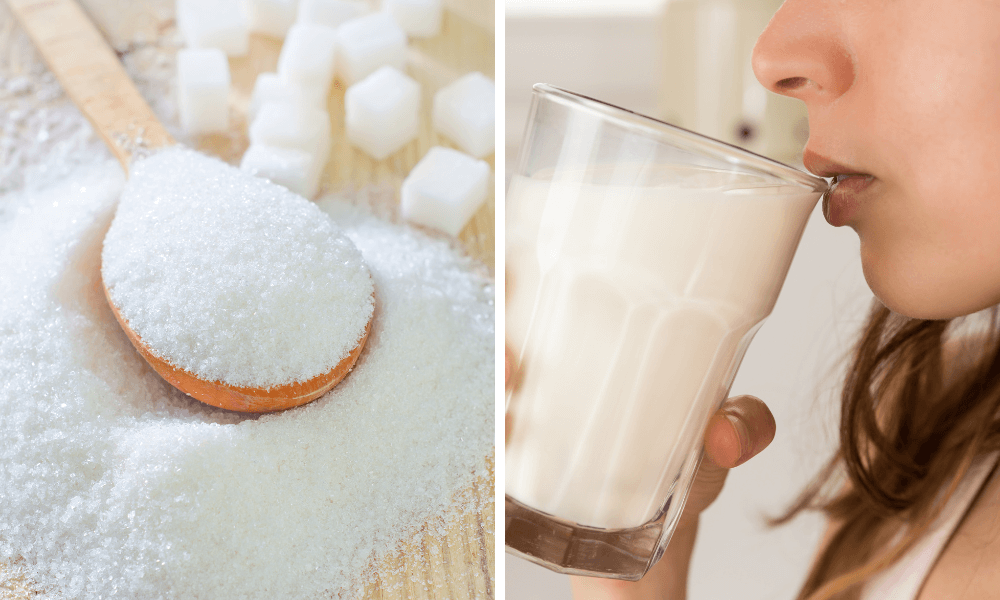
WHAT TO CONSUME IN CASE OF OILY SCALP AND HAIR?
FOODS RICH IN VITAMINS B AND E
Vitamins B and E are essential for nourishing the hair, as they also regulate sebum production. Beans, fresh vegetables, and fruits are abundant in B vitamins, while the best sources of vitamin E include seeds, olive oil, avocado, and green leafy vegetables. Snack on natural sunflower seeds or almonds instead of sweets or salty chips!
ZINC SUPPLEMENTATION
We need to continuously replenish our body’s zinc reserves because our body does not store this mineral. Zinc also combats improper sebum production while playing a crucial role in immune system function and maintaining hormonal balance. The best natural sources are: meat, eggs, cheese, seafood, peanuts, and almonds.
Oatmeal for breakfast: the perfect start to every day! It’s an excellent source of B vitamins and zinc.
Suggestion: soak some oats in plant-based milk for a few hours before consuming!
HOW TO CARE FOR EASILY GREASY HAIR? WHAT TO DO WHEN WASHING YOUR HAIR?
- If possible, wash your hair in the morning to maintain the freshness of your hair, as the sebaceous glands are most active during the night.
- Once you've chosen the right hair care product, it's essential to wash your hair a maximum of 2-3 times a week if you don't want greasy hair.
- When washing your hair, try to massage the shampoo thoroughly into your scalp to effectively remove excess sebum from the scalp and hair roots.
- Always wash your hair in lukewarm water, not hot water, as hot water increases sebum production.
- Always make sure you've thoroughly rinsed the shampoo out of your hair because shampoo residue can irritate the scalp and increase greasiness.
- Use conditioner only on the hair ends, making sure it doesn't touch the scalp and hair roots, only the drier parts of the hair. You can use the Oxygeni Hair Detox Mask for hair ends and scalp treatment as well, but if your scalp is oily and your hair strands are flat, rinse off the mask thoroughly after 1-2 minutes of leave-on time.
- Avoid using hair sprays, mousses, and shine enhancing sprays as they can increase greasiness when applied to the scalp and hair roots.
HOME TREATMENT FOR OILY HAIR AND SCALP
As mentioned earlier, oily hair can have numerous triggers. If you’re struggling with oily hair, it’s worth considering whether you can identify with some of the factors listed above, that are characteristic of you and your lifestyle. Revising your dietary habits and routines is essential when searching for the cause of excessive oiliness.
The primary part of caring for overly oily hair and scalp is thorough cleansing and disinfection, followed by restoring the scalp’s pH balance and moisturizing to avoid overdrying. You should avoid aggressive procedures and chemical active ingredients if you want to take care of your scalp’s health. Herbs, tinctures, essential oils, and scrubs often do more harm than good to the scalp. Use gentle, mild products that delicately nurture your scalp. Check out Oxygeni Hair and Skin products by clicking HERE, which contain carefully selected ingredients, thus sparing the scalp and hair from artificial, harmful substances.
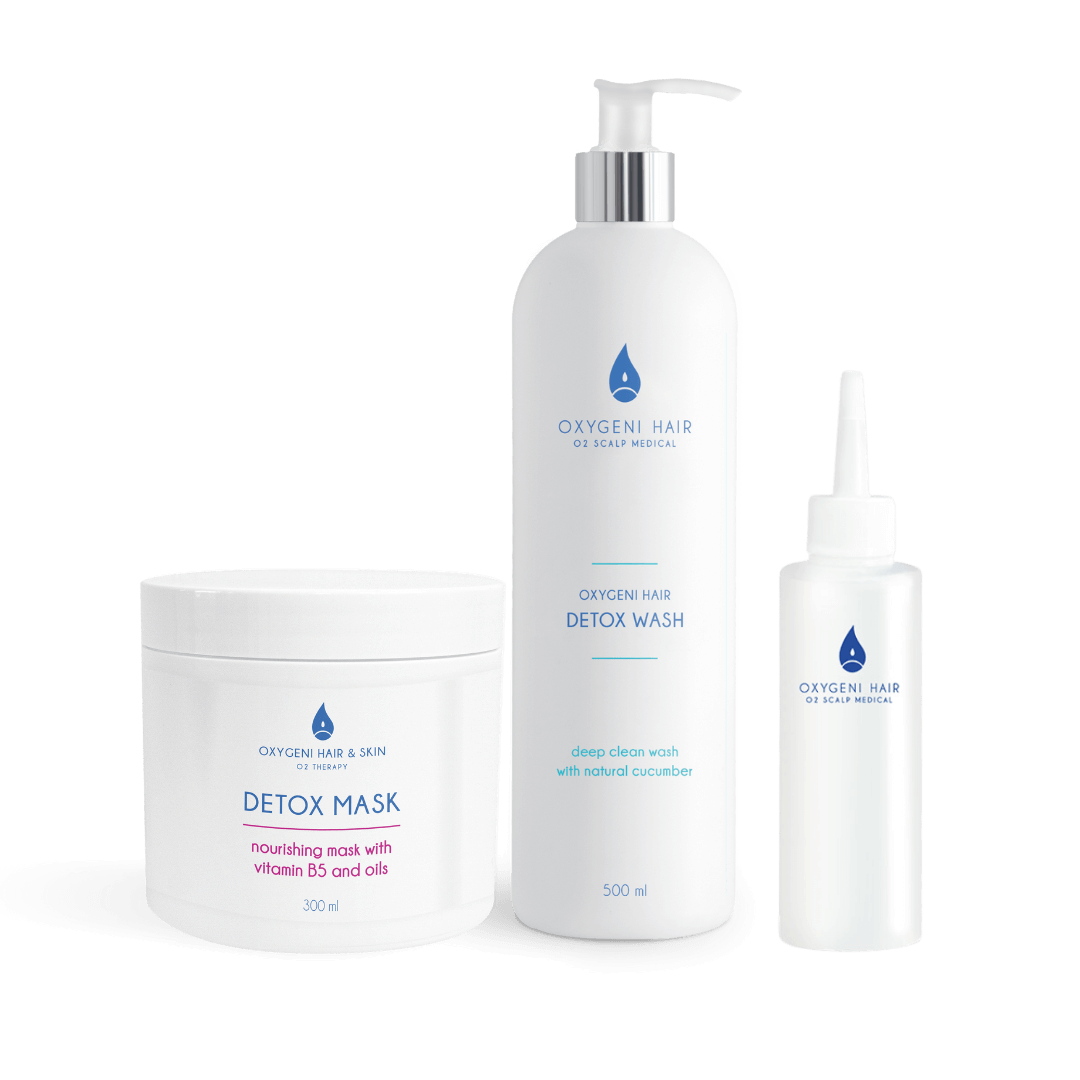
Oily scalp and oily dandruff product bundle
If you're just getting to know our products and prefer to start with a smaller package, we recommend the Detox Wash and Detox Mask bundle for you. The main active ingredient of Detox Wash is cucumber extract, which regulates sebum production. Additionally, it has cleansing, toning, and anti-inflammatory properties. The Detox Mask nourishes the hair and scalp with vitamin B5 and cucumber extract. It can help restore pH balance while deeply nourishing the hair strands. It is particularly recommended for oily scalp and dry, chemically damaged, or bleached hair ends.
Tip: Use the Detox Wash for oily hair and scalp as a treatment for 60 days to regulate your scalp’s sebum production. After 60 days, start using Sensitive Wash, and alongside it, use Detox Wash again 1-2 times a month. This way, you can prevent the recurrence of excessive scalp oiliness!
REVIEWS ABOUT THE OXYGEN THERAPY AND THE OXYGENI HAIR PRODUCTS
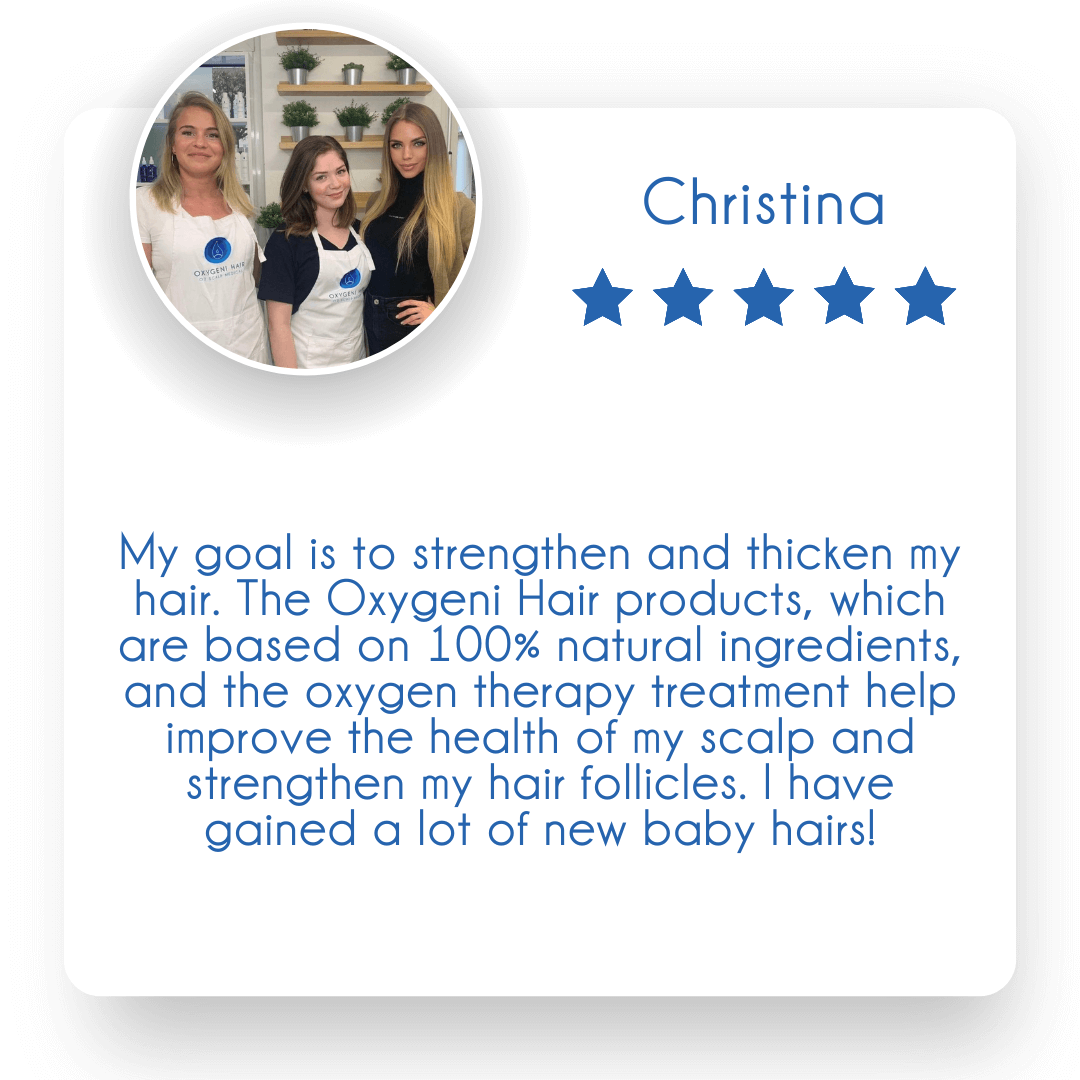

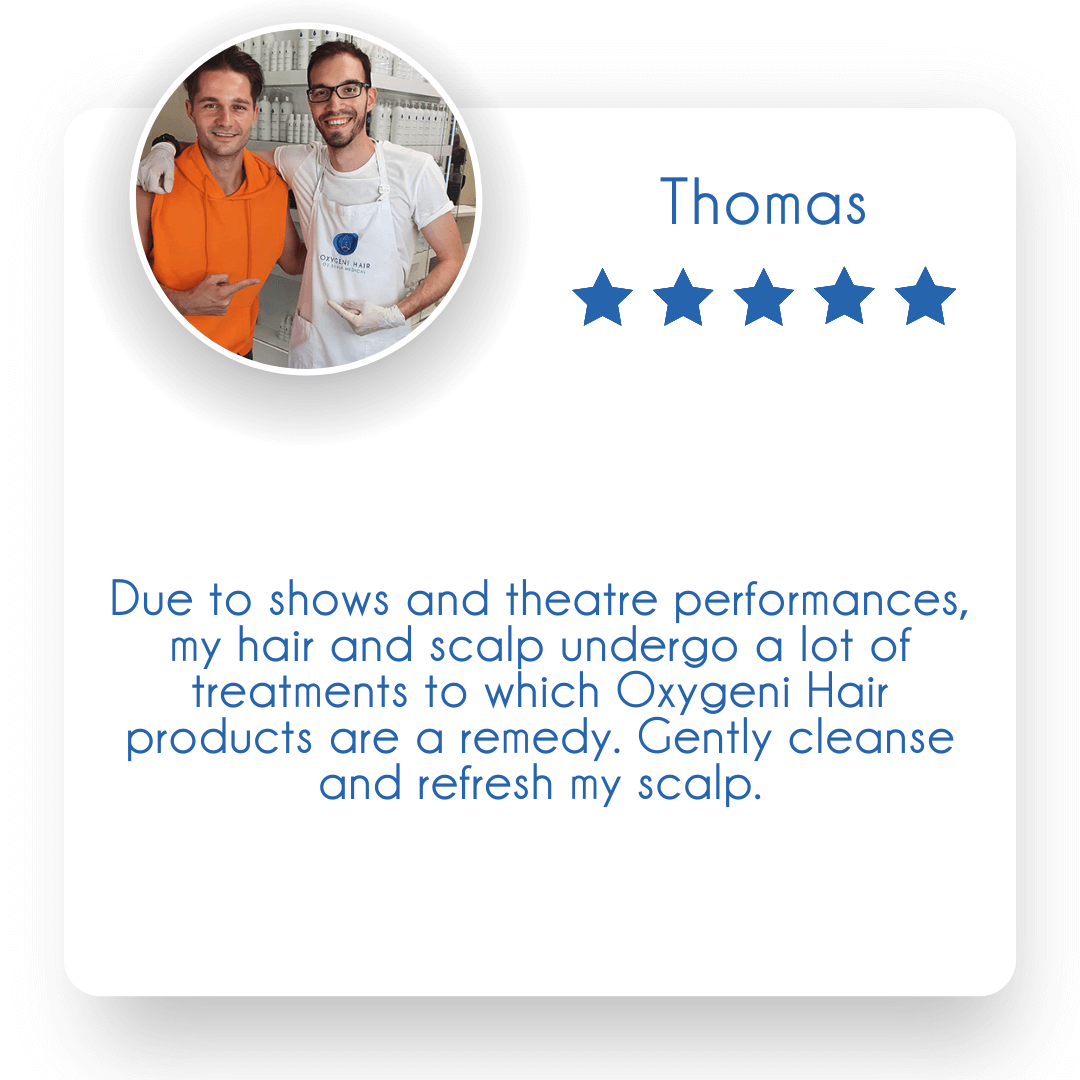
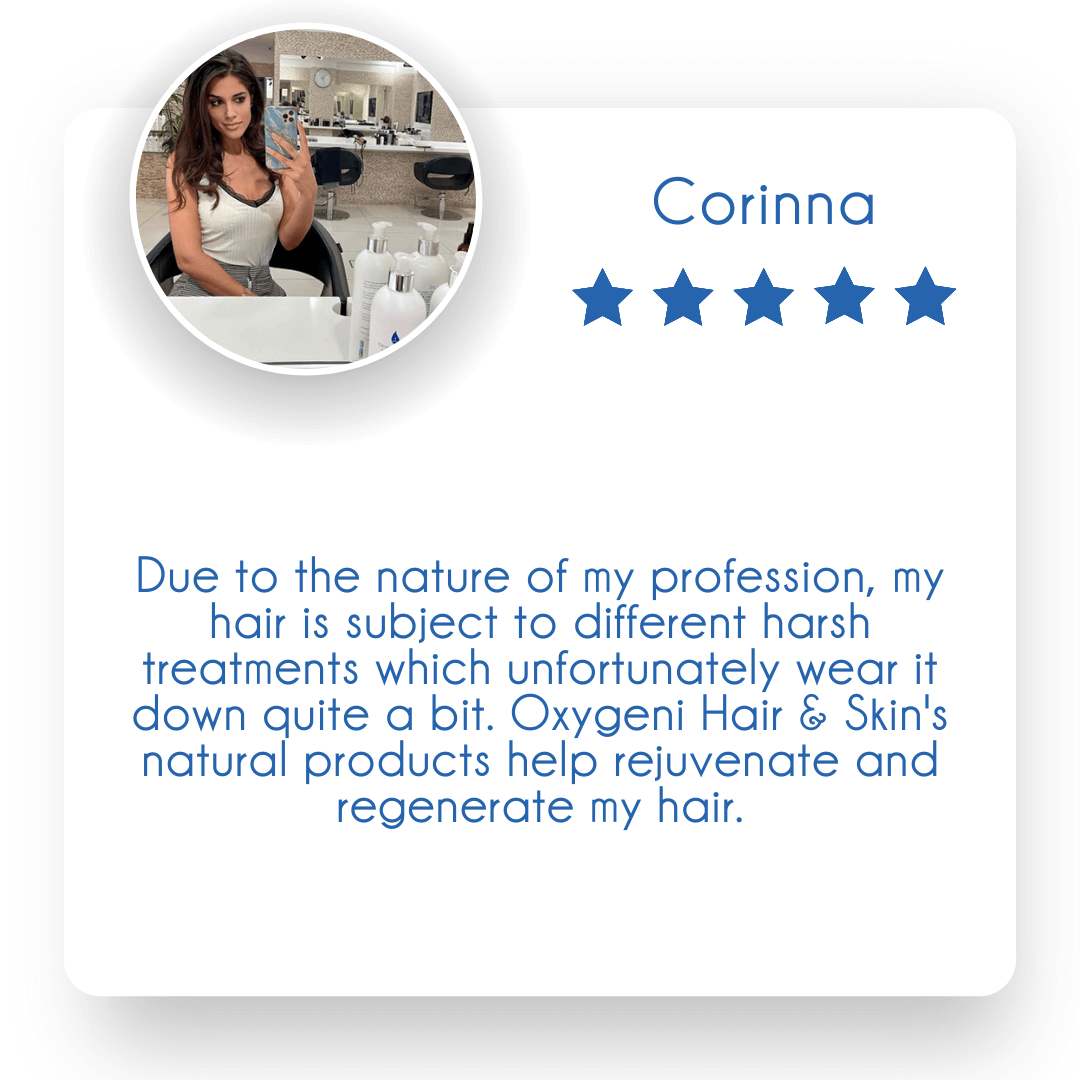
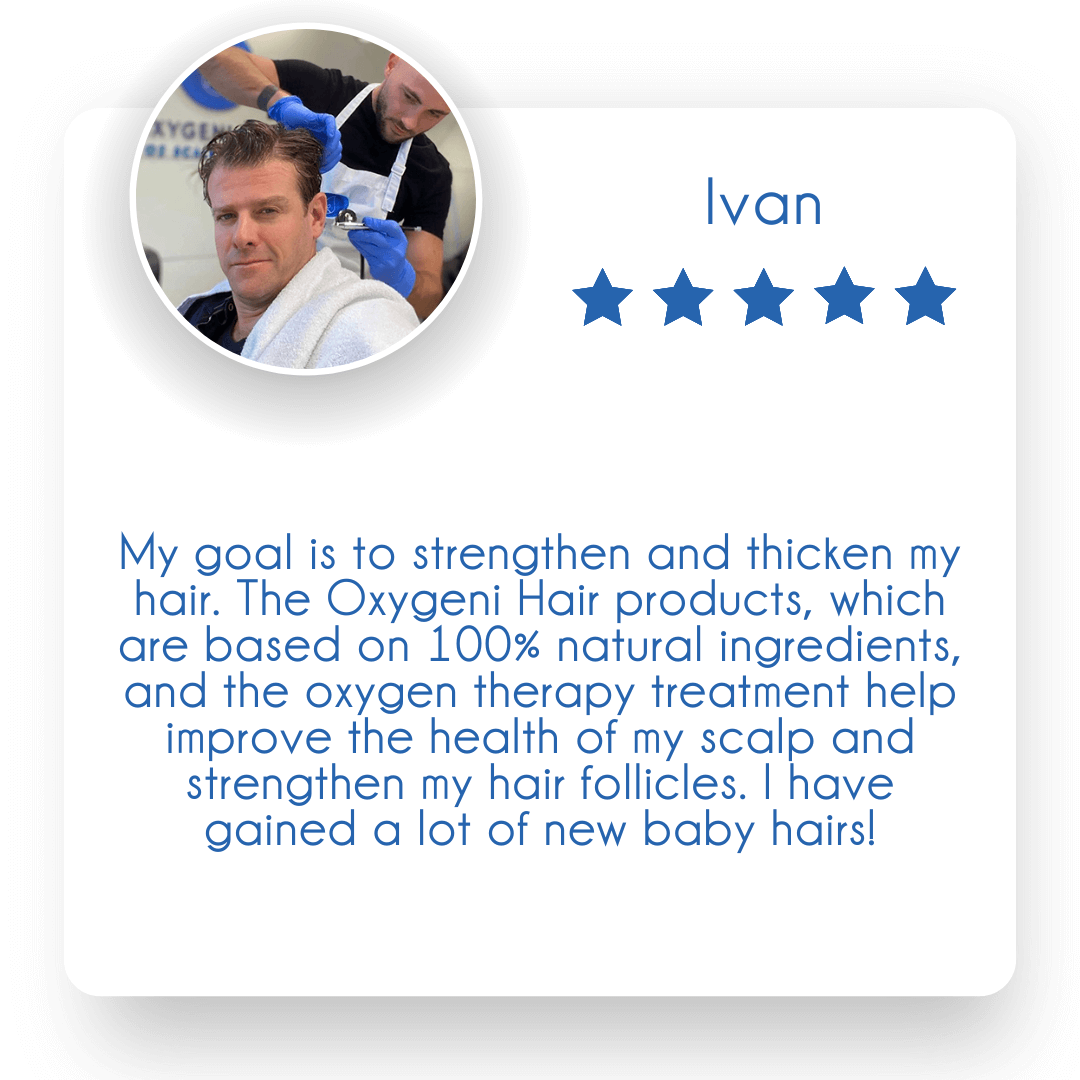
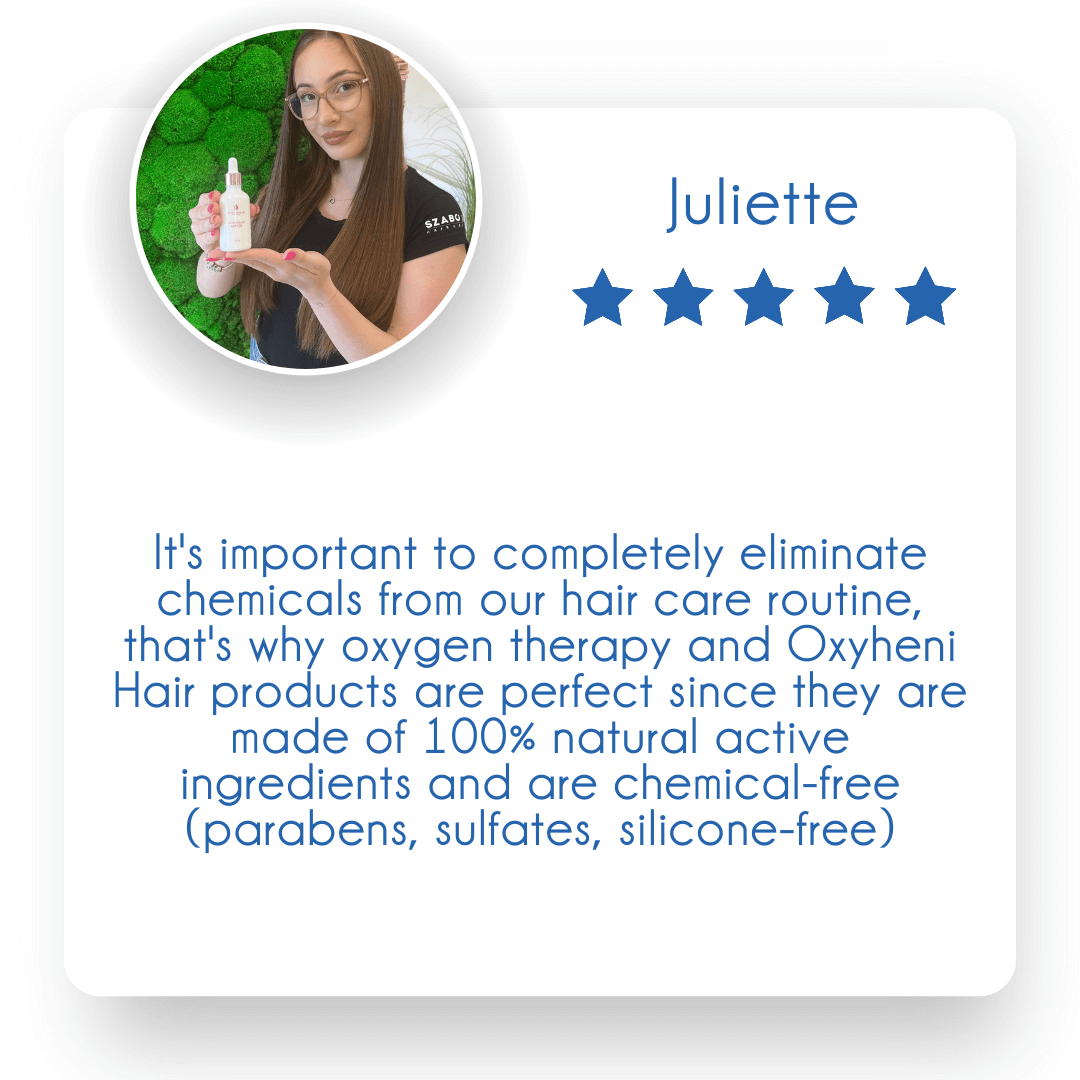
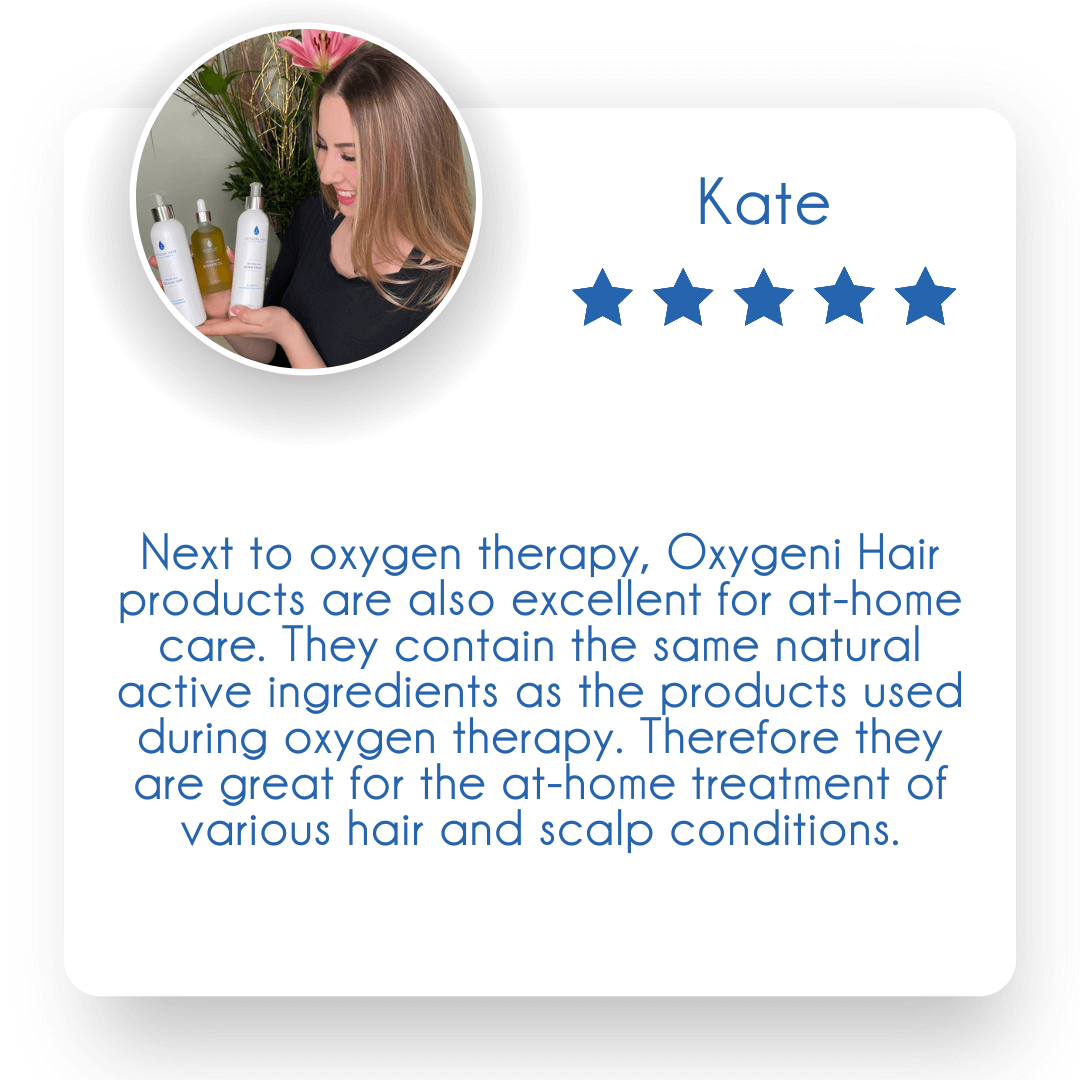
Follow us on our social media platforms!
